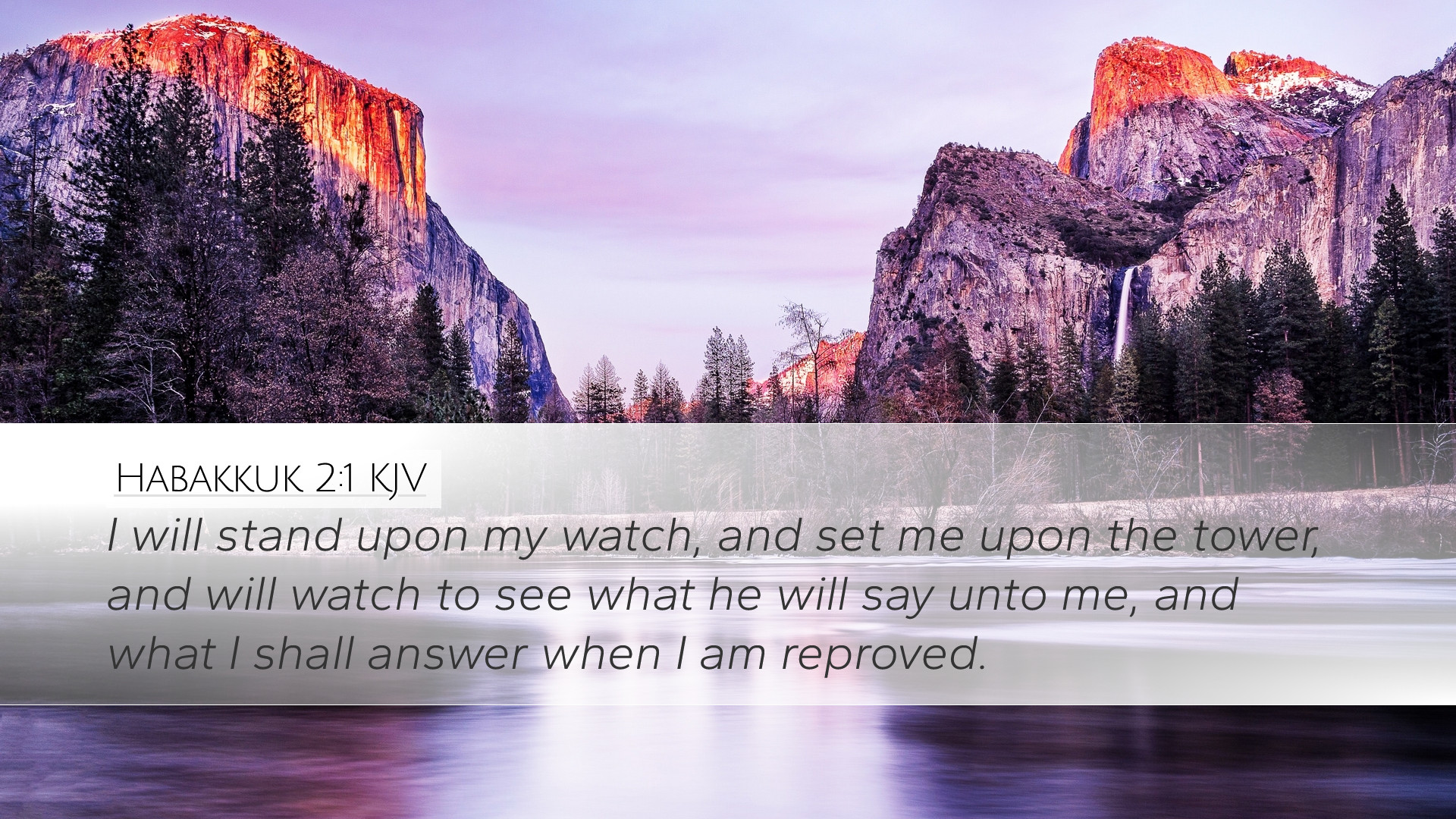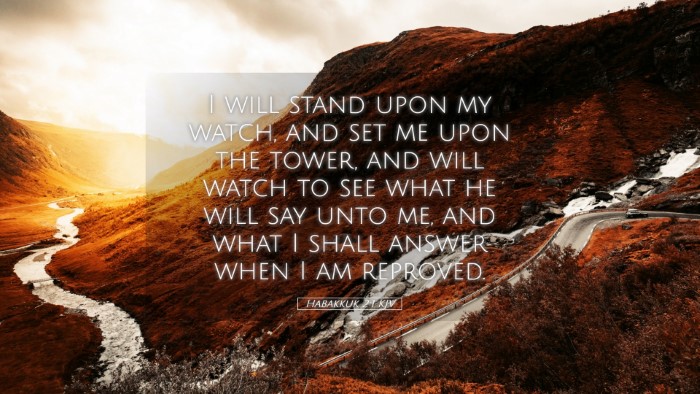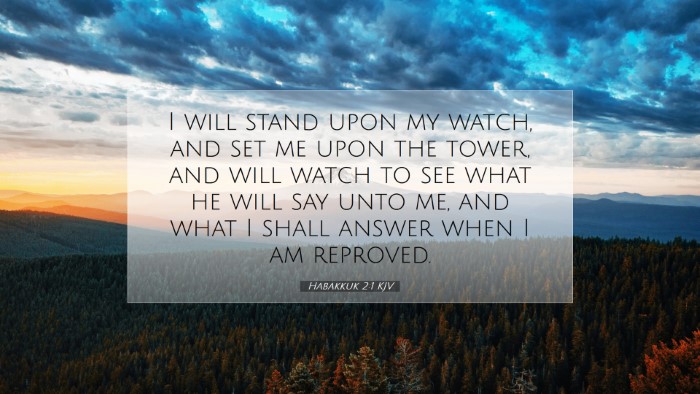Old Testament
Genesis Exodus Leviticus Numbers Deuteronomy Joshua Judges Ruth 1 Samuel 2 Samuel 1 Kings 2 Kings 1 Chronicles 2 Chronicles Ezra Nehemiah Esther Job Psalms Proverbs Ecclesiastes Song of Solomon Isaiah Jeremiah Lamentations Ezekiel Daniel Hosea Joel Amos Obadiah Jonah Micah Nahum Habakkuk Zephaniah Haggai Zechariah MalachiHabakkuk 2:1
Habakkuk 2:1 KJV
I will stand upon my watch, and set me upon the tower, and will watch to see what he will say unto me, and what I shall answer when I am reproved.
Habakkuk 2:1 Bible Commentary
Commentary on Habakkuk 2:1
Habakkuk 2:1 states: "I will stand upon my watch, and set me upon the tower, and will watch to see what he will say unto me, and what I shall answer when I am reproved." This verse encapsulates the theme of waiting upon the Lord, seeking His direction and understanding amidst confusion and turmoil.
Contextual Background
The book of Habakkuk, set against the backdrop of the declining moral state of Judah, reflects the prophet’s deep concern for his people. It reveals a dialogue between the prophet and God concerning justice and the suffering of the righteous. Habakkuk voices his doubts and struggles, seeking clarity regarding God's purposes in the face of imminent judgment against Judah.
Interpretative Insights
Matthew Henry's Commentary: Henry emphasizes the steadfastness of Habakkuk in waiting upon God. He notes that the prophet positions himself on a watchtower, symbolizing spiritual vigilance. This posture signifies readiness to receive divine revelation. Henry points out that true faith requires active waiting and attentiveness to God's voice.
Albert Barnes' Notes: Barnes elaborates on the metaphor of the "watchtower." He explains that it is a place of height and safety, reflecting the need for believers to rise above worldly concerns. The act of watching suggests not only waiting but also the expectation of a response from God. Barnes urges readers to understand this waiting as an act of faith, anticipating God’s answer to the questions posed.
Adam Clarke's Commentary: Clarke highlights the personal aspect of Habakkuk’s waiting. He suggests that the prophet is not merely waiting for a general answer but is in a session of prayerful expectation. Clarke implies that this verse illustrates a critical aspect of the believer's relationship with God—engagement, dialogue, and the humility to receive correction and understanding when needed.
Theological Themes
- Spiritual Vigilance: The act of standing upon the watch signifies a call to be spiritually alert. Christians are encouraged to remain watchful regarding divine guidance and assurance in their lives.
- Expectant Faith: The waiting mentioned in the passage is not passive; it is imbued with an expectation of God’s response. This illustrates the nature of faith that anticipates God's revelation and answers.
- The Necessity of Reproof: The phrase "when I am reproved" indicates a readiness to receive correction and guidance. This highlights the importance of humility and openness to God’s teachings.
Application for Pastors and Theologians
For pastors, this verse serves as a reminder of the importance of remaining vigilant in prayer and seeking God’s guidance. They are called to model this behavior for their congregations, illustrating the significance of watching and waiting upon the Lord.
Students and theologians can derive lessons from Habakkuk’s example of wresting with difficult questions of faith. This text invites them to explore how faith interacts with doubt and the human experience in the context of divine governance and justice.
Understanding Habakkuk 2:1 within the broader narrative of Scripture further enriches its theological implications. It links with New Testament concepts of prayer and waiting on the Lord, inviting reflection on Christ’s teachings about vigilance and faithfulness amidst tribulation.
Conclusion
In summary, Habakkuk 2:1 presents a profound model for believers on how to engage with God amidst uncertainty. The insights derived from public domain commentators like Henry, Barnes, and Clarke provide a rich tapestry of understanding that is not only pertinent for scholarly study but also for practical living. This verse challenges us to remain watchful, expectant, and open to divine reproof, as we faithfully navigate our spiritual journeys.


